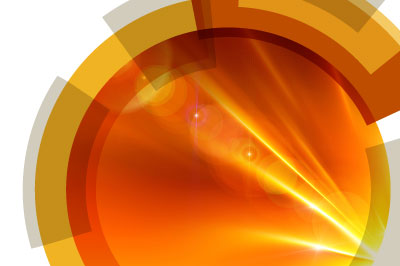Scope
This RSC Energy Sector 2nd “Chemistry in Energy” Conference aims to embrace all aspects of energy–related research, where chemistry and the chemical sciences play a key or underpinning role in solving the UK’s combined energy challenges of carbon emissions, energy costs and security of supply. The scope of the conference will be broad and will include all energy forms and technologies.
Submit an Abstract
The 2nd CEC invites the submission of abstracts in the format described on the event website. Abstracts should be submitted to the Secretariat by e-mail by 20th January 2017. The purpose of these abstracts is to enable the Programme Sub-committee to assess their suitability for the Conference Programme and it is the intention of the Conference Executive Committee to publish the submitted abstracts in the form of a booklet of the Conference Proceedings, to be distributed at the Conference.
Prospective authors are asked to submit one or more abstracts by downloading this template. The closing date for submissions is 20th January 2017 and submitted abstracts MUST conform to the specified format. For accepted abstracts, one author must present the abstract at the conference either as an oral presentation or as a poster. This author must register and pay his/her conference fee before 12th May 2017, otherwise their paper/poster cannot be confirmed in the programme.
Abstract Themes
Abstracts, which describe the applications of Chemistry in Energy are now invited with a scope that should cover, but is not limited to, the mainstream energy sources.
Fossil fuels: (oil, gas and coal), upstream and downstream and including carbon capture and storage/utilisation, environmental issues, including emissions to air, environmental mitigation and control systems, future fossil fuel power generation technologies, steam cycle chemistry/materials issues and unconventional energy sources, (fracking and underground gasification)
Nuclear: nuclear waste management and reprocessing, materials issues/structural integrity, including the effect of chemistry on the degradation of materials in reactor systems and reactor coolant chemistry including corrosion and nuclear fusion
Renewables: fuel cells, energy storage (including batteries), solar photovoltaics, solar thermal, solar fuels, biofuels/biomass, geothermal and hydro, wind and wave energy systems and energy from wast
In addition, the conference will welcome abstracts, which illustrate contributions from chemical sciences to maximising oil and gas recovery, solving challenges for fossil fuels, transitioning to renewables, energy distribution and conversion, materials developments for energy technologies, environmental and emissions issues and analytical chemistry in the energy industry.
Research students are strongly encouraged to submit abstracts, attend and give presentations, and conference fees for students will be significantly reduced.
This RSC Energy Sector 2nd “Chemistry in Energy” Conference aims to embrace all aspects of energy–related research, where chemistry and the chemical sciences play a key or underpinning role in solving the UK’s combined energy challenges of carbon emissions, energy costs and security of supply. The scope of the conference will be broad and will include all energy forms and technologies.
Submit an Abstract
The 2nd CEC invites the submission of abstracts in the format described on the event website. Abstracts should be submitted to the Secretariat by e-mail by 20th January 2017. The purpose of these abstracts is to enable the Programme Sub-committee to assess their suitability for the Conference Programme and it is the intention of the Conference Executive Committee to publish the submitted abstracts in the form of a booklet of the Conference Proceedings, to be distributed at the Conference.
Prospective authors are asked to submit one or more abstracts by downloading this template. The closing date for submissions is 20th January 2017 and submitted abstracts MUST conform to the specified format. For accepted abstracts, one author must present the abstract at the conference either as an oral presentation or as a poster. This author must register and pay his/her conference fee before 12th May 2017, otherwise their paper/poster cannot be confirmed in the programme.
Abstract Themes
Abstracts, which describe the applications of Chemistry in Energy are now invited with a scope that should cover, but is not limited to, the mainstream energy sources.
Fossil fuels: (oil, gas and coal), upstream and downstream and including carbon capture and storage/utilisation, environmental issues, including emissions to air, environmental mitigation and control systems, future fossil fuel power generation technologies, steam cycle chemistry/materials issues and unconventional energy sources, (fracking and underground gasification)
Nuclear: nuclear waste management and reprocessing, materials issues/structural integrity, including the effect of chemistry on the degradation of materials in reactor systems and reactor coolant chemistry including corrosion and nuclear fusion
Renewables: fuel cells, energy storage (including batteries), solar photovoltaics, solar thermal, solar fuels, biofuels/biomass, geothermal and hydro, wind and wave energy systems and energy from wast
In addition, the conference will welcome abstracts, which illustrate contributions from chemical sciences to maximising oil and gas recovery, solving challenges for fossil fuels, transitioning to renewables, energy distribution and conversion, materials developments for energy technologies, environmental and emissions issues and analytical chemistry in the energy industry.
Research students are strongly encouraged to submit abstracts, attend and give presentations, and conference fees for students will be significantly reduced.










